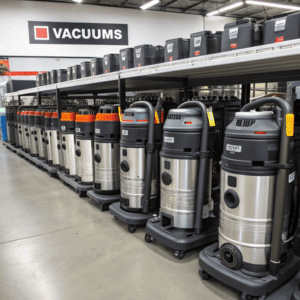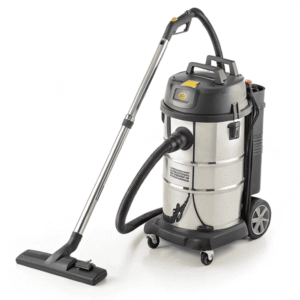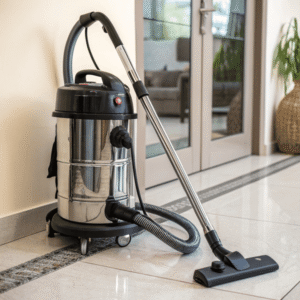Why Your Factory Needs a Heavy Duty Industrial Vacuum?
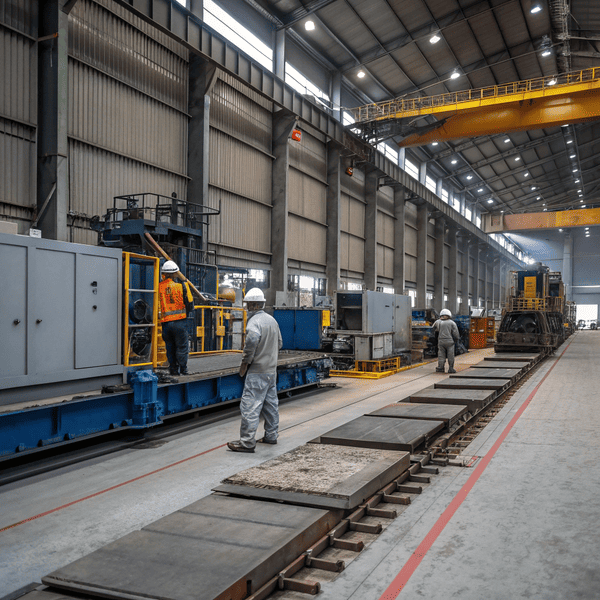
Dust, debris, and tough messes threaten safety and slow down production. A factory needs an industrial vacuum to stay clean and efficient, no matter the workload.
Heavy duty industrial vacuums work where ordinary models fail. They are designed for Heavy duty industrial vacuums[^1] work where ordinary models fail. They are designed for hazardous dust, heavy debris, and round-the-clock use, giving factories long-lasting cleaning power and reliability.
[^1]: Explore this link to understand how heavy duty industrial vacuums can enhance cleaning efficiency in challenging environments.
, heavy debris, and round-the-clock use, giving factories long-lasting cleaning power and reliability.
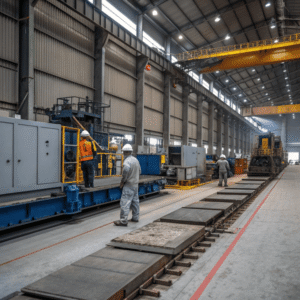
Factories face unique cleaning challenges: metal shavings, powders, liquids, and more. Standard equipment breaks quickly and leaves mess behind. I have seen production lines stopped by clogged vacuums and dust on machines. Heavy duty industrial vacuums solve these problems and keep work running smoothly. Next, I’ll explain what separates them from commercial models, what they’re used for, and why investing in one pays off.
What is the difference between commercial and industrial vacuums?
Too many factories lose time using commercial vacuums for work they can’t handle.
Industrial vacuums are stronger, safer, and built for continuous use, while commercial vacuums suit light daily cleaning in offices or shops.
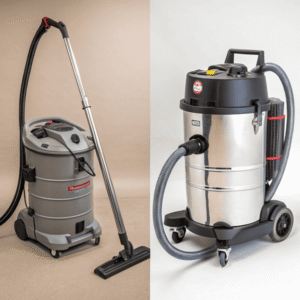
The big difference is in power and The big difference is in power and build quality. Commercial vacuums[^1] clean hotel rooms, small offices, or schools. They work fine for dust, crumbs, and small spills. But in factories, debris can be sharp, wet, toxic, or even flammable
[^1]: Explore this link to understand how commercial vacuums enhance cleaning efficiency and safety in various environments.
. Commercial vacuums clean hotel rooms, small offices, or schools. They work fine for dust, crumbs, and small spills. But in factories, debris can be sharp, wet, toxic, or even flammable. Industrial vacuums use tough motors, steel bodies, and special filters. They don’t overheat when running all day. I recall a client’s factory where commercial units needed repairs every month. After switching to industrial models, downtime dropped and costs fell.
Let’s compare the key features:
| Feature | Commercial Vacuum | Industrial Vacuum |
|---|---|---|
| Power | Medium, several hours/day | High, continuous use |
| Debris Type | Light, dry, small debris | Heavy, hazardous, wet/dry |
| Build | Plastic/metal | All-steel, chemical-resistant |
| Filter | Standard, HEPA optional | Multi-stage, custom |
| Safety | Basic | Explosion-proof, ATEX |
| Price | $$–$$$ | $$$$+ |
What are industrial vacuums used for?
Factories need solutions that clean up more than just dust.
Industrial vacuums are used for metal shavings, hazardous powders, wet spills, bulk debris, and fine dust across manufacturing environments.
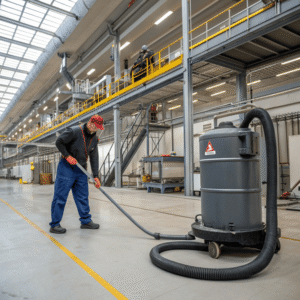
Factories and production lines face a wide range of messes—metal, glass, slurry, or explosive dust. Factories and production lines[^1] face a wide range of messes—metal, glass, slurry, or explosive dust. Industrial vacuums handle it all
[^1]: Discover insights on how optimized production lines can significantly boost manufacturing productivity.
handle it all. In plastic and metal molding, they clean up bits that damage machines. In food processing, they keep wet floors safe for workers. My experience with CNC shops taught me how fast shavings gather, slowing down work and risking accidents without the right vacuum.
Many industrial vacuums connect to central systems or special pipes. Some remove welding fumes; others have HEPA filters to capture hazardous dust. Liquid vacuums mop up spills fast. Explosion-proof models are required in industries with highly combustible powder. Here’s how these vacuums deliver results factory owners rely on:
| Use Case | How Industrial Vacuums Help | Example Industries |
|---|---|---|
| Metal Shavings | Prevent machine damage, quick clean | CNC, metalworking |
| Hazardous Powders | Control air quality, safety | Pharmaceuticals, chemicals |
| Wet Spills | Mop up liquids, reduce slip risks | Food, beverage, molding |
| Bulk Debris | Fast removal, fewer clogs | Woodworking, mining |
| Fine Dust | HEPA control, meet health codes | Electronics, printing |
Are industrial vacuums worth it?
Spending more on a heavy duty vacuum often feels risky until you see what it saves.
Industrial vacuums are worth it because they cut downtime, lower repair costs, and protect worker safety, providing clear return on investment for factories.
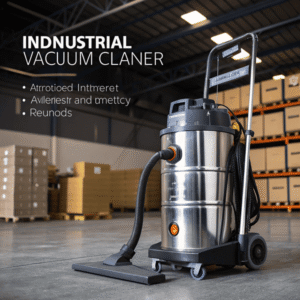
The upfront cost of an industrial vacuum is higher than a The upfront cost of an industrial vacuum[^1] is higher than a commercial unit. But in every factory I’ve helped, payoff comes quickly. Machines run longer because they aren’t clogged with dust or shavings
[^1]: Explore this link to understand how industrial vacuums enhance efficiency and longevity in factory operations.
. But in every factory I’ve helped, payoff comes quickly. Machines run longer because they aren’t clogged with dust or shavings. Floors stay safer, so accident rates drop. Filter changes and repairs happen less. Companies meet safety codes without fines.
One client had frequent breakdowns with cheaper vacuums. Their new industrial model last years, saving thousands in time and replacement. Satisfaction grew from clean working spaces and fewer interruptions. I always say, “Buy once, cry once”—invest in quality up front and see savings every month.
Here’s a breakdown of costs and returns:
| Factor | Commercial Vacuum | Industrial Vacuum |
|---|---|---|
| Initial Cost | Lower | Higher |
| Service Life | Months/a year | Years |
| Repair Frequency | High | Low |
| Safety Compliance | Sometimes fails | Always meets codes |
| Total Cost/Year | High (repairs, downtime) | Low (efficiency) |
Conclusion
Factories need heavy duty industrial vacuums for reliable performance, safety, and cost savings. Investing now means fewer problems and a cleaner workspace every day.

